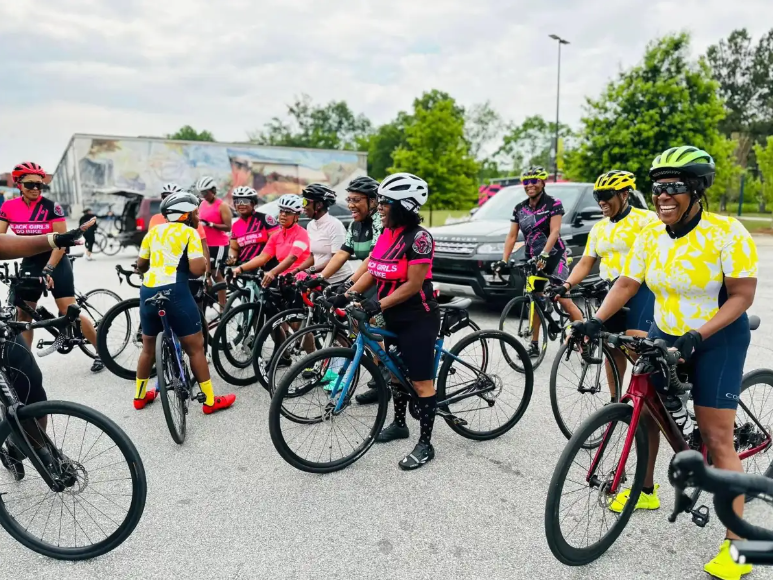Growing up, riding a bicycle was one of Monica Garrison’s favorite summertime activities. The sense of excitement and freedom she felt on two wheels stayed with her into young adulthood when she commuted to and from work on her bike.
Then, life happened — her career, a family — and Garrison had less and less time for cycling. Eventually, she put down the kickstand and parked her bike.
I was surprised that I rarely saw women of color on bikes while riding through my town.
During a particularly rough stretch of 2013, however, Garrison found herself feeling low, badly in need of some joy and a weight-loss routine. Her bicycle beckoned, she hopped back on and hasn’t stopped since then.
“I got what I was looking for, and I wanted to share that with other women who looked like me and perhaps shared similar struggles,” says Garrison, who lives and rides in Pittsburgh. “I was surprised that I rarely saw women of color on bikes while riding through my town.”
So she decided to be the change she wanted to see and started a Facebook page, looking for other women like her. She didn’t know it then, but Garrison’s page would lead to Black Girls Do Bike, a nonprofit dedicated to recruiting and celebrating Black women cyclists with more than 100 chapters worldwide — and counting.
The mission is “to introduce the joy of cycling to all women, but especially, women and girls of color,” according to BGDB’s website. But it’s as much a safety organization and a support group as it is a cycling club.
“We are establishing a comfortable place where lady cyclists can support and advise one another, organize rides, and promote skill-sharing,” according to the website.
By “demystifying” a largely white, predominantly male sport, according to the website, BGDB hopes to “be a liaison to help usher new riders past barriers to entry and into the larger cycling community. We rejoice when women choose cycling as a tool for function, fitness, freedom, and fun!”
That fits the definition of Garrison’s relationship to cycling, who considers the sport “a positive recurring theme” in her life.
“I have always loved the feeling cycling gives me,” she says. “In my twenties, I used commuting by bike as a stress reliever. Later in life, cycling became a way to find mental peace and connect with my body. I’d say cycling brings me back to my center and has been very good to me.”
The rapid growth of BGDB shows other Black women crave those feelings, too, Garrison says. The liberation and joy of riding a bike, she says, can be a powerful antidote to racism by reducing stress and providing an environment in which healing can take place.
Women riding with us enter a space free of the microaggressions we encounter interacting daily with a society that was not built for us to succeed as our authentic selves.
“Our mission resonates with women who are eager to be a part of a movement that fosters positive change, both in cycling and in society as a whole,” Garrison says. Women of color, she says, hunger for a space “where we can come together to embrace cycling and empower one another. Women riding with us enter a space free of the microaggressions we encounter interacting daily with a society that was not built for us to succeed as our authentic selves.”
But the explosive growth of BGDB is also looking to change the complexion of the sport.
“Historically, Black women have been underrepresented in the world of cycling,” Garrison says. “One of my primary goals was to create a platform where Black women and girls could be seen and celebrated as cyclists. By being visible on the roads, trails, and in the cycling community, we shatter stereotypes and demonstrate that cycling is not limited by race, gender, body size, or background.”
When others see Black women on two wheels, “they can envision themselves doing the same, nurturing a sense of possibility,” Garrison says. “It may sound cliche, but we are actively being the change we want to see.”
“Hopefully,” she says, “we are moving the needle — one ride at a time.”
This series was produced in partnership with the W.K. Kellogg Foundation. For more stories focused on racial healing, please visit wordinblack.com.





